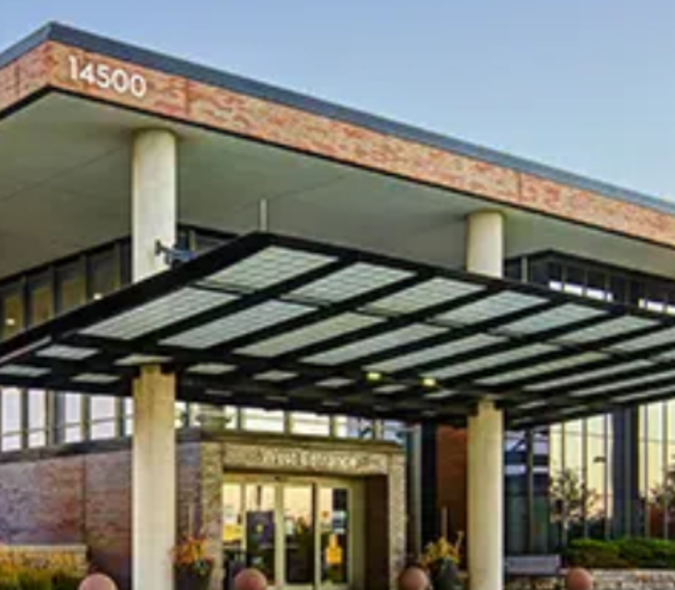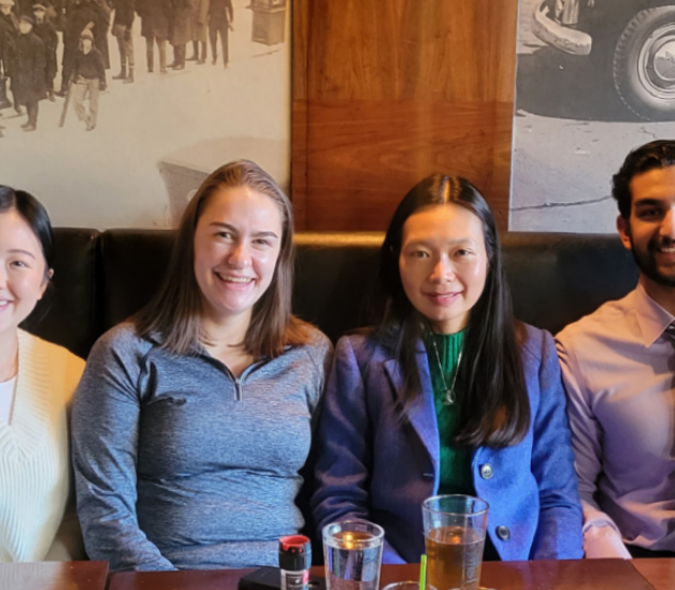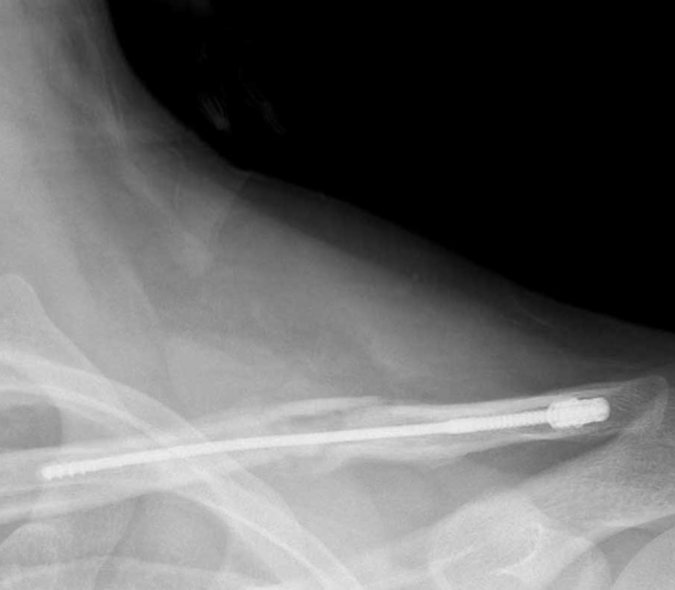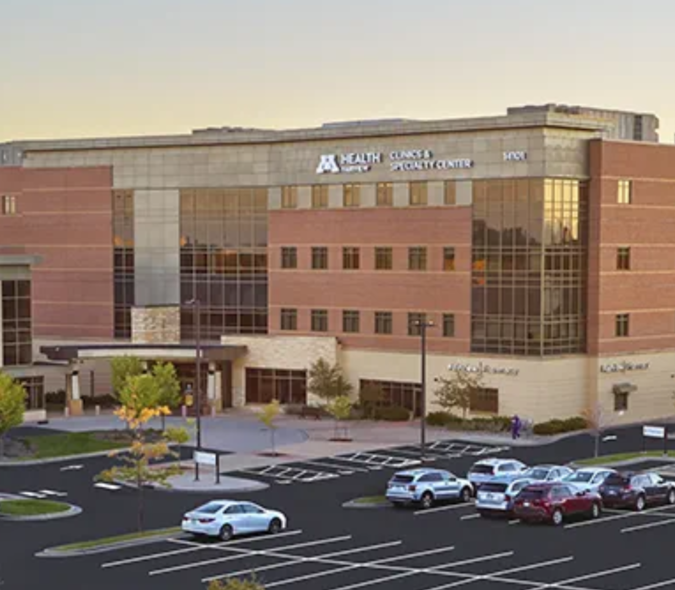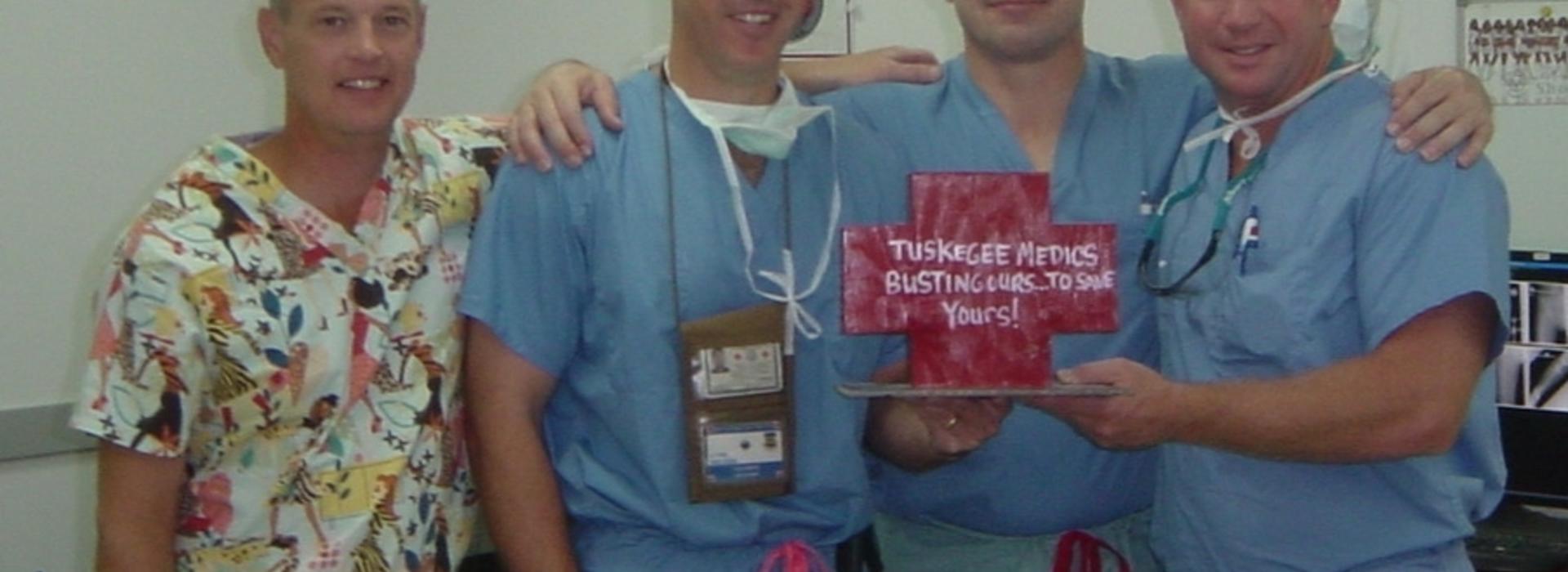
U of M Orthopaedic Residency Prepares Eric Nelson, MD, for Service as Combat Zone Medic
Eric Nelson, MD, is a Gopher through and through. Raised in Plymouth, MN, he chose the University of Minnesota Medical School because of its reputation and proximity to home, having completed his undergraduate degree at the US Air Force Academy.
Nelson met his wife in medical school, and they pursued a couples match after graduation. He matched with the University of Minnesota Department of Orthopaedic Surgery, and his wife matched with the Department of Pediatrics. After four years of medical school, and five years of residency, Nelson was ready to complete his active duty commitment.
Nelson and his wife volunteered to go to England, where they were stationed for four years, and where their daughter was born. He was involved in humanitarian deployments, with the intention of establishing positive and collaborative international relationships.
“Humanitarian deployments are a part of what the military does,” Nelson explained. “Maintaining relationships with people in other countries is crucial so that you have an established connection before an emergency happens.”
In the summer of 2001, Nelson was deployed to Mozambique, which had experienced severe and extensive flooding in early 2000. He helped lead a trauma and life support class, while the Army Corps of Engineers built a school, and the eye clinic fitted people with glasses donated by the Lions Club.
“It was really interesting because in Mozambique, we probably learned as much from them as they learned from us,” he said.
On September 11th, 2001, the context of Nelson’s military service changed completely.
“I was doing surgery on a patient who crashed his motorcycle and had a multi-ligament injured knee at about one in the afternoon,” Nelson recalled. “That was around the time that the first plane hit the World Trade Center, so the world changed while I was in the operating room.”
During his time in England, he treated common orthopaedic injuries and saw very little trauma. After 9/11, he would be deployed to provide medical care in combat zones. Nelson was deployed to Pakistan for the summer in 2002, and later to Nigeria while George W. Bush and Laura Bush were visiting.
“We were tasked with being there just in case something happened to President Bush or the First Lady,” he explained.
During that time, the Bush administration was touring Africa, and the White House had determined that the medical facilities in Nigeria were not adequately equipped to handle an emergency. Nelson and his team set up a temporary surgical suite in the hotel a floor below where the President and First Lady were staying.
“The plan for the ambulance was Air Force One and fly back to the United States,” he noted.
After serving in England, Nelson and his family were relocated to the Air Force Academy in Colorado, where he was stationed for five years. From Colorado he was deployed to Balad Air Base, the busiest aeromedical evacuation hospital in Iraq, where he served as an orthopaedic trauma surgeon for five months.
“Of the 472 operations that I did in five months, there were only five that were closed injuries,” he said. “The injuries that we treated in the combat zone clearly demonstrated to me that the education that I got at the University of Minnesota prepared me very well.”
Soldiers brought into the hospital were stabilized, then sent to Germany, and eventually to the United States for recovery. Arriving alive at Balad meant a 98 percent chance of survival.
“You’re not going to see one of everything in residency,” Nelson said. “However, the Department of Orthopaedic Surgery faculty gave us the tools and the principles to apply in different situations. Even if I hadn’t seen a certain injury before, we learned the surgical techniques and we learned how to think on our feet. Those skills are invaluable in the combat casualty situation because there isn’t someone there telling you what to do or how to do it, you have to figure it out on the spot.”
The Air Force surgical team takes a multi-disciplinary approach to treatment, and often doctors perform surgeries on a patient simultaneously.
“It gave me perspective to know how to prioritize care for multiply-injured patients,” he said. “Sometimes there would be five different surgical specialties working on a patient at the same time.”
Nelson felt that the medical experience in Iraq made a tangible impact.
“People came to our hospital with horrific injuries, and we were able to make a difference,” he said.
By the time Nelson had finished his nine-year commitment, he had risen to the rank of lieutenant colonel, served as deputy squadron commander, and was responsible for managing administrative tasks for several hundred people.
“I was balancing being clinically active, a good dad, a good husband, and a good commander,” he said. “None of those things can really be done halfway, in my opinion.”
That’s when Nelson and his family decided to move back to Minnesota. Now, Nelson has built a practice with Heartland Orthopedic Specialists at Alomere Health in Alexandria, MN. Nelson noted that since it’s a small community hospital, major trauma cases are typically sent elsewhere.
“I’m not sure if it’s good or bad, but nothing that could come through the emergency department would be truly shocking,” he said.
Nelson appreciates the close-knit community in Alexandria, and says that it is an excellent location to raise their two children. He has coached youth hockey and serves on the hospital board working on solutions to community healthcare needs.
“Serving in the Air Force was an honor and a very unique life experience,” he said. “Moving home to Minnesota has been an exciting ‘next chapter’ for our family, and having the kids grow up in one place for the past ten years has been great.”
Nelson says that he had too many mentors in the department to name individually, but that numerous faculty members positively impacted his training.
“I felt very well prepared to apply what I learned in residency in the Air Force,” he said. “The educators at the U should know that they are doing it right. I felt very equipped with the knowledge that I gained, even if I had to use it in an outside-the-box fashion.”
